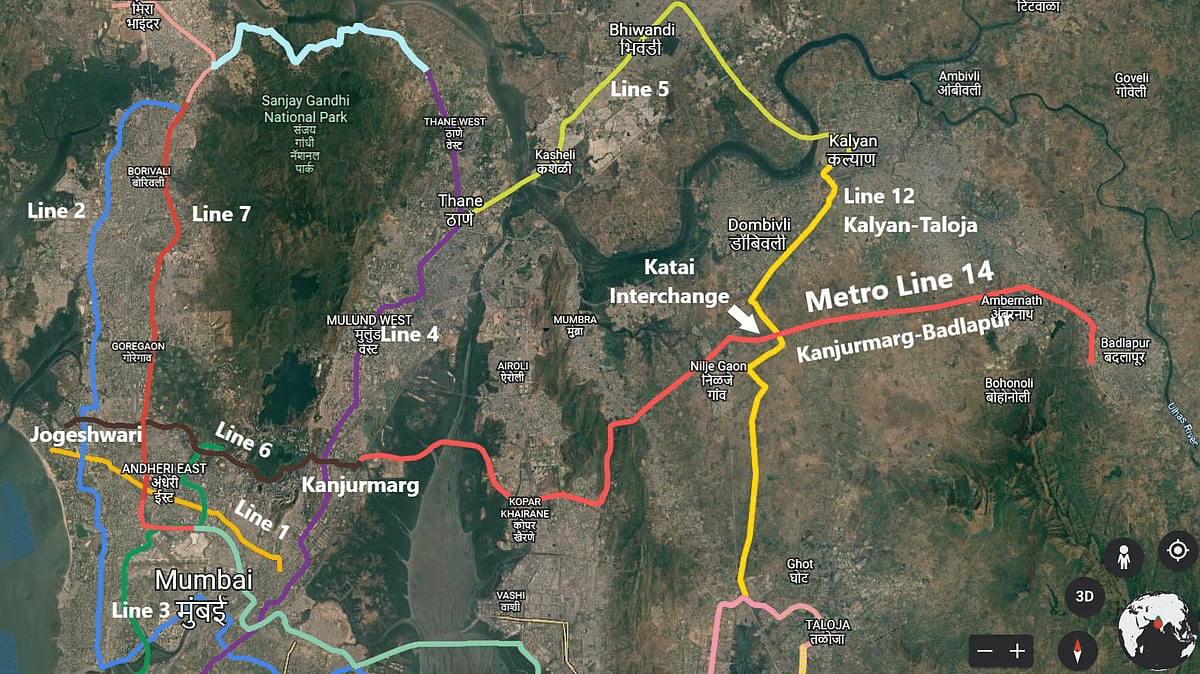Mumbai Metropolitan Region Development Authority’s (MMRDA) ambitious initiative to regularise unauthorised constructions in the Bhiwandi Surrounding Notified Area (BSNA) has encountered significant challenges, with only a small fraction of proposals gaining approval. Launched in March 2022, the policy aimed to curtail mounting litigation and generate crucial revenue for the region’s extensive infrastructure projects. However, the initial uptake reveals a complex narrative of regulatory adherence and the formidable task of retrofitting a sprawling urban landscape into a framework for sustainable development.
The policy, designed to bring illicit structures into the legal fold, permits property owners to regularise their holdings by remitting substantial penalties, ranging from 20% to 100% of the base premium rates. These penalties are meticulously calculated based on 25% of the government’s ready reckoner for stamp duty applicable in the year of approval, with severity of violations dictating the quantum. For instance, minor deviations, such as work exceeding a Commencement Certificate but within approved plans, incur a 20% penalty. More severe breaches, like unapproved construction within permissible plot potential, including setback areas, attract a 70% penalty, while regularisation through Transfer of Development Rights (TDR) or additional Floor Space Index (FSI) commands a hefty 100% penalty.
Despite a robust influx of 331 regularisation proposals, only 33 have received the requisite approval, while a considerable 113 applications faced outright rejection. A staggering 185 proposals remain pending, often due to issued deficiencies. The primary impediments to approval stem from non-conformity with the BSNA’s sanctioned development plan and the persistent failure of applicants to furnish essential documentation. This points to a deeper issue of awareness and compliance, particularly concerning environmental regulations and the broader vision for planned urbanisation.
Furthermore, the “Compounding of Unauthorised Structures” category, a separate avenue for addressing violations, has seen an even more stringent response. Out of 194 proposals submitted under this route, a significant 174 were rejected, with the remaining 20 still pending due to deficiencies. Notably, not a single proposal under the compounding mechanism has been approved to date. This stark reality underscores the MMRDA’s unwavering commitment to stricter scrutiny and adherence to compliance requirements, signalling a clear departure from past leniency. The policy’s stringent nature reflects a critical shift towards fostering disciplined urban growth, essential for building truly equitable and eco-friendly cities.
MMRDA officials champion this policy as a pragmatic stride towards resolving the pervasive issue of unauthorised constructions, which often strain existing infrastructure and hinder the development of green spaces and public amenities. “This initiative not only integrates illegal developments into the legal framework but also ensures that developers and owners contribute fairly to the city’s infrastructure push,” stated an MMRDA official, emphasising the dual benefits of revenue generation and planned development. This revenue is earmarked for crucial infrastructure projects, which, if executed with a focus on green building standards, low-carbon materials, and renewable energy integration, can pave the way for a more sustainable urban future.
However, the low approval rate highlights the considerable chasm between existing development patterns and the desired trajectory of planned, sustainable growth. It signals a need for enhanced public awareness campaigns, perhaps even workshops, to educate property owners and developers about the intricacies of the development plan, the implications of non-compliance, and the long-term benefits of adhering to regulations that prioritise environmental health and social equity. For a city aiming to achieve zero net carbon emissions and foster gender-neutral urban spaces, ensuring that new and regularised constructions align with these principles is paramount. The journey towards a truly sustainable and equitable Mumbai Metropolitan Region is complex, requiring not just policy implementation but also a cultural shift towards responsible and environmentally conscious urbanisation. The current statistics from Bhiwandi serve as a critical indicator of the challenges that lie ahead in this transformative endeavour.
Also Read: Rural India’s Income Surges Signals Shift to Services-Led Growth


